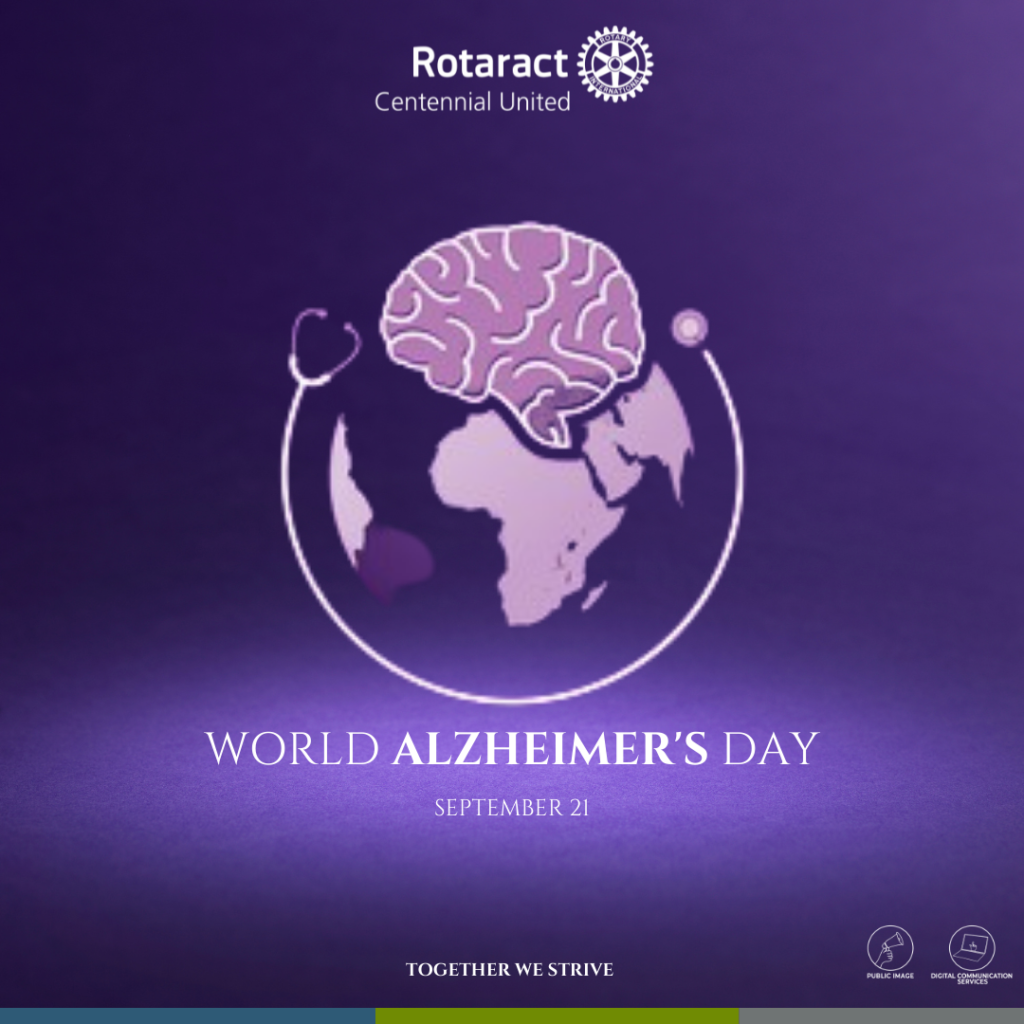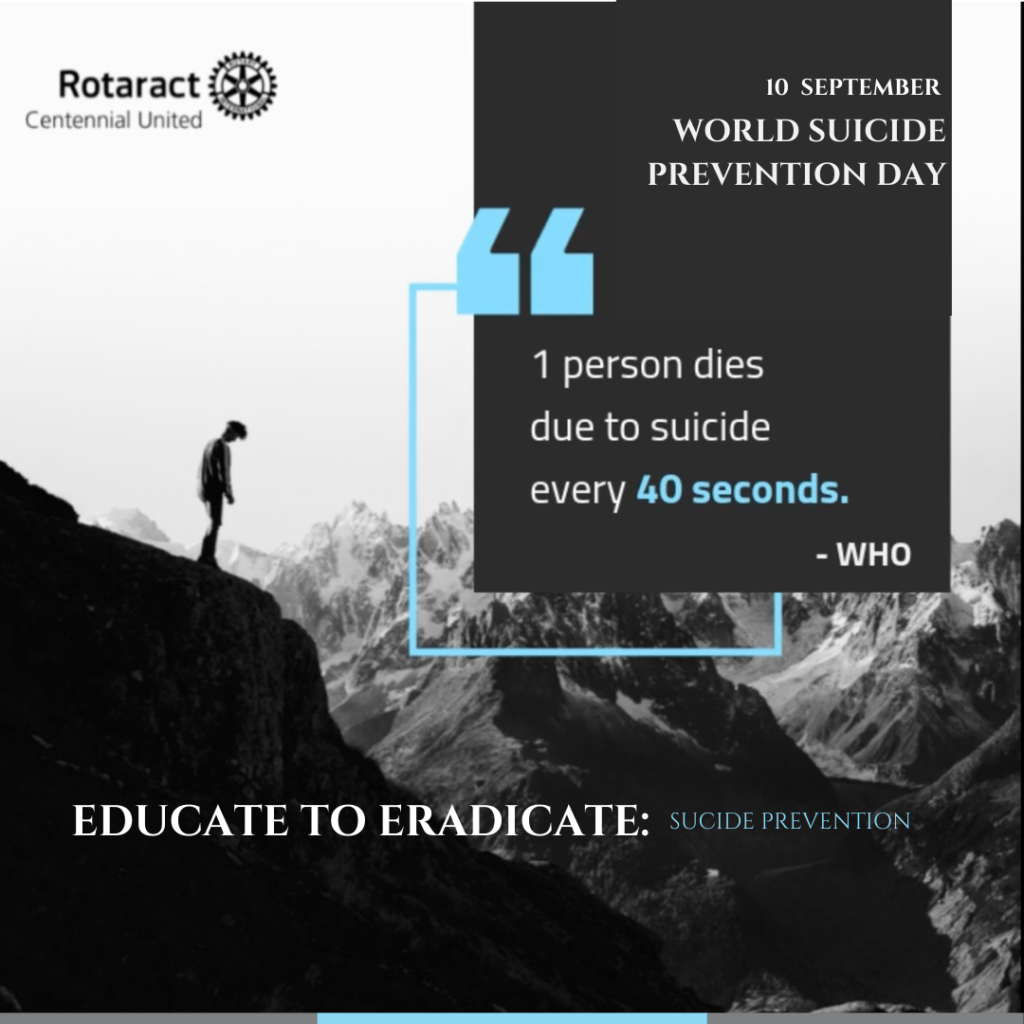Educate to Eradicate: Alzheimer

Alzheimer’s is the most common form of dementia. Accounting for 60 to 80 per cent of dementia cases worldwide. It’s a progressive brain disorder that gradually degenerates neurons causing memory loss and other cognitive abilities severe enough to interfere with daily life
Alzheimer’s worsens over time. The symptoms of Alzheimer’s develop gradually and deteriorate over time. As critical cells die, drastic changes to your memory and personality can occur, which ultimately severely impact and interfere with daily tasks.
Alzheimer’s is not a normal part of ageing. On the contrary, the most significant known risk factor is increasing age, and the majority of people with Alzheimer’s are 65 and older.
“We remember their love when they can no longer remember.”
Few Signs and Symptoms of Alzheimer’s that one could identify
· Memory loss that disrupts daily life
· Challenges in planning or solving problems
· Difficulty completing familiar tasks
· Confusion with time or place
· Trouble understanding visual images and spatial relationships
· New problems with words in speaking or writing
· Misplacing things and losing the ability to retrace steps
· Decreased or poor judgment
· Withdrawal from work or social activities
· Changes in mood and personality
If you notice one or more signs in yourself or your loved ones, it can be challenging to know what to do. It’s natural to feel uncertain or nervous about discussing these changes with others. This may cause you to fear upsetting someone by sharing observations about differences in their abilities. However, these are significant health concerns that medical professionals should evaluate. Therefore, if you doubt whether you or your loved ones are in concern, please seek medical help. Receiving an early Alzheimer’s diagnosis may help lessen anxieties about why you are experiencing symptoms.
Alzheimer’s disease typically progresses slowly in three general stages: early, middle and late (sometimes referred to as mild, moderate and severe in a medical context). Since Alzheimer’s affects people in different ways, each person may experience symptoms or progress through the stages differently.
Early-stage Alzheimer’s (mild)
During the early stage of Alzheimer’s, a person may function independently.
Common difficulties include:
• Coming up with the right word or name.
• Remembering names when introduced to new people.
• Having difficulty performing tasks in social or work settings.
Middle-stage Alzheimer’s (moderate)
During the middle stage of Alzheimer’s, the dementia symptoms are more pronounced. the person may confuse words, get frustrated or angry, and act in unexpected ways
Symptoms, which vary from person to person, may include:
• Being forgetful of events or personal history.
• Feeling moody or withdrawn.
• Experiencing confusion about where they are or what day it is.
• Having trouble controlling their bladder and bowels.
• Showing an increased tendency to wander and become lost.
• Experiencing changes in sleep patterns, such as sleeping during the day and becoming restless at night.
Late-stage Alzheimer’s (severe)
In the final stage of the disease, Individuals may tend to lose the ability to respond to their environment, carry on a conversation, and, eventually, control movement.
At this stage, individuals may:
• Require around-the-clock assistance with daily personal care.
• Lose of awareness of recent experiences as well as of their surroundings.
• Experience changes in physical abilities, including walking, sitting and, eventually, swallowing
• Have difficulty communicating.
• Become vulnerable to infections, especially pneumonia.
There’s no cure for Alzheimer’s, but there are treatments that may change disease progression and drug and non-drug options that may help treat symptoms. Understanding available options can help individuals living with the disease, and their caregivers cope with symptoms and improve their quality of life.
Researchers believe there isn’t a single cause of Alzheimer’s disease. Instead, it likely develops from multiple factors, such as genetics, lifestyle and environment.
Resource: https://www.alz.org/





